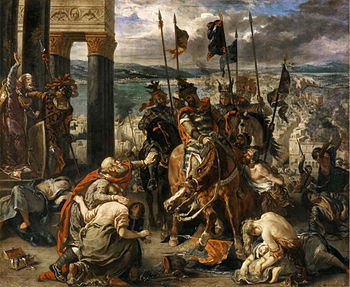Authorities have charged the head of a demining charity with fraud and money laundering, as well as his wife and seven other high-ranking officials (three of which are serving Greek diplomats)in a case that involves at least 9 million euros in public funding.
Specifically, the unnamed Greek NGO received aid (of more than 8.9 million Euros in government subsidies from the Ministry of Foreign Affairs) between the period 2000-2004. It should be reminded that at the time the Greek Foreign Ministry was headed by none other than former PASOK leader George Papandreou. Their mission, claim the same reports, was to clear land mines in countries such as Bosnia-Herzegovina, Lebanon and Iraq.
The Greek authorities believe that the entire sum was illegally obtained as the NGO did not meet official funding criteria and that no progress reports were ever submitted (while some reports even highly doubt that any work was conducted at all). Authorities also note that Greek embassies in countries where the demining was carried out did not monitor implementation and that supervision of the NGO's expenses by the foreign ministry was "non-existent."
When asked for documentation, police authorities were apparently told that “the NGO has shut down and most of the documents have been thrown away.”
A deep investigation is now underway to determine whether or not the demining operations allegedly handled by the NGO were actually performed or if they were fabricated.
The good news is that the founder of this mysterious non-governmental organization (or NGO) -Constantinos Tzevelekos- has been jailed, but the bad news is that the case is much shadier than it actually looks.
For one, rumors suggest that the NGO’s management had a rather privileged -and chummy- relationship with the Ministry of Foreign Affairs -especially during the PASOK administrations-.
Secondly, the name Alex Rondos popped up. As mentioned earlier, several people have been charged of fraud and money laundering, one of which is none other than Alex Rondos. Some of you may recall his name since he was questioned in connection with the case that involves the assassination attempt against the former prime minister of Greece Costas Karamanlis. Others may remember him as the shadow of George Papandreou, since he was one of his special advisers -and still is one of his closest friends-.
A case has been opened against Rondos charging him with fraud, money laundering and false certification against the Greek State.
When George Papandreou took over the Ministry of Foreign Affairs (under Simitis' rule) and Rondos became one of his closest associates, many began to question the sudden surge of NGO's that were mushrooming everywhere and sucking the State dry -some claim that the funds absorbed by these NGOs reached as much as 400 million Euros-.
According to "Deutsche Welle", Rondos is now in South Sudan as a special EU envoy to contribute to a political solution of the crisis there.
(Why are we suspicious of that? Simple: everywhere this man has gone, a war, a conflict or an uprising suddenly occurs when he leaves. What is happening in Sudan at the moment? Think Ellada... Think!)
But that is not all. The former commander of Greece's intelligence service -and former MP with the LAOS party-, Mr. Ioannis Korantis had signalled Rondos out as the person referred to in a report that was conducted by the Russian secret services to EYP in 2008 and which had warned the then prime minister of Greece -Costas Karamanlis- that there was an assassination attempt against him. In fact Korantis has said that Rondos was one of the few that "knew about the conspiracy to murder Costas Karamanlis!"
Of course the former head of the Greek intelligence agency said he had no other information about this case -and or Rondos-, but he did note that all the information that was provided to Greek authorities in 2008 by the Russians about the planned assassination attempt proved to be completely credible.
He has already appeared before a Greek prosecutor about the assassination attempt case, and said that during that period there was a bomb attack against Karamanlis' car on Alexandras Avenue, and after conducting an investigation the Russian intelligence service described the event exactly as it happened. At that time, the responsibility for the attack was assumed by a terrorist organization that went by the name of the "People's Will", and one report on defencenet claims that Russian authorities suspect that this organization is one of those that are "controlled by Western intelligence agencies."
Here is where it gets even more interesting. Alex Rondos, who we repeat is and has always been a close associate to George Papandreou, has conducted many missions to the former Soviet republics or to countries that have a high "energy status". Apparently he did this via his involvement in NGOs, -such as in Georgia and we all know what happened here, since this country was soon led into a suicidal war against Russia in 2008-. Basically, Rondos is a mysterious man who appears in all the global "hot spots" or... in areas that have been eyed by the Western world for their energy potential.
In fact the very same Rothschilds that employ international crook and Skopje propaganda financier George Sorros is suspected of actually employing Mr. Alex Rondos. Read more about this HERE
The shocker for us here at HellasFrappe was discovering that Rondos’ first diplomatic activity was working with Albania, Egypt, Libya, Cyprus and Turkey to mark the division of Mediterranean.
But that is just the tip of the iceberg:
"Rondos is directly involved with the Greek Foreign Ministry’s chapter on foreign aid development that holds an annual budget of some 60 million Euros.Read more by clicking HERE
His connections in the IMF and the World Bank apparently helped Papandreou to deal with the current debt crisis. It also says that he holds excellent relations with FYROM authorities especially people from the WAZ Group including the director Srdjan Kerim. His liaison or mediator with Greek political and business structures is always Marinela Koppa whose role in secret negotiations with the name is explained in WikiLeaks documents.
Interestingly enough Rondos' latest activity was a project in Egypt and mentions the activity of the canvas in Egypt, which is an organization through non-violent protests that topple governments in undemocratic regimes.
Rondos has also conducted secret activities between Tirana and Athens. According to what has been reported a series of strategic agreements on maritime border emerged from these top secret meetings.
These agreements were also known and signed by Dora Bakoyannis who is also a close friend of Rondos."
And believe us... this is just a small example... We have a load of stories for you to feast on... the links of which are provided below.
So did Papandreou have any knowledge about the strange dealings of his friend? Did he sign out these funds to this NGO? (Because if he did... then its lights out baby...)
Stay tuned frappers... Looks like the establishment is beginning to "clean up house".
References: defencenet, olympia
Related articles
Please read the stories below for more details, as well as to reference the wire-tapping case, and find out who Mr. Rondos is.
PART l - Plot to assassinate Costas Karamanlis revealed (VIDEO)
http://hellasfrappe.blogspot.com/2011/06/plot-to-assassinate-kostas-karamanlis.html
PART II – Plot to assassinate Costas Karamanlis revealed (VIDEO)
http://hellasfrappe.blogspot.com/2011/06/part-ii-plot-to-assassinate-kostas.html
Authorities launch formal investigation into assassination plot against Karamanlis
http://hellasfrappe.blogspot.com/2011/08/authorities-launch-formal-investigation.html
Assassination Attempt Against Karamanlis Makes Int.l Headlines VIDEOS
http://hellasfrappe.blogspot.com/2012/03/assassination-attempt-against.html
Ambassador Threatens Greek MP Over Energy Policy - Connected To Karamanlis Assassination Plot
http://hellasfrappe.blogspot.com/2013/01/ambassador-threatens-greek-mp-over.html
Was Mossad, MI6 & CIA Behind Assassination Plot Of Karamanlis?
http://hellasfrappe.blogspot.com/2012/03/was-mossad-mi6-cia-behind-assassination.html
Papandreou, Rondos, Lazzard, Sorros equals to the Rothchilds
http://hellasfrappe.blogspot.com/2011/04/papandreou-rondos-lazzard-sorros-equals.html
Does Papandreou agree with Rondos’ views about sharing the Aegean with Turkey?
http://hellasfrappe.blogspot.com/2011/10/does-papandreou-agree-with-rondos-views.html
PART l - Plot to assassinate Costas Karamanlis revealed (VIDEO)
http://hellasfrappe.blogspot.com/2011/06/plot-to-assassinate-kostas-karamanlis.html
PART II – Plot to assassinate Costas Karamanlis revealed (VIDEO)
http://hellasfrappe.blogspot.com/2011/06/part-ii-plot-to-assassinate-kostas.html
Authorities launch formal investigation into assassination plot against Karamanlis
http://hellasfrappe.blogspot.com/2011/08/authorities-launch-formal-investigation.html
Assassination Attempt Against Karamanlis Makes Int.l Headlines VIDEOS
http://hellasfrappe.blogspot.com/2012/03/assassination-attempt-against.html
Ambassador Threatens Greek MP Over Energy Policy - Connected To Karamanlis Assassination Plot
http://hellasfrappe.blogspot.com/2013/01/ambassador-threatens-greek-mp-over.html
Was Mossad, MI6 & CIA Behind Assassination Plot Of Karamanlis?
http://hellasfrappe.blogspot.com/2012/03/was-mossad-mi6-cia-behind-assassination.html
Papandreou, Rondos, Lazzard, Sorros equals to the Rothchilds
http://hellasfrappe.blogspot.com/2011/04/papandreou-rondos-lazzard-sorros-equals.html
Does Papandreou agree with Rondos’ views about sharing the Aegean with Turkey?
http://hellasfrappe.blogspot.com/2011/10/does-papandreou-agree-with-rondos-views.html



















